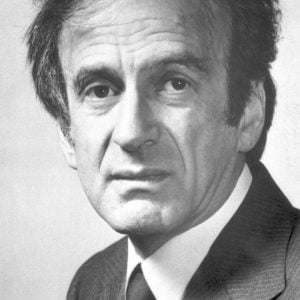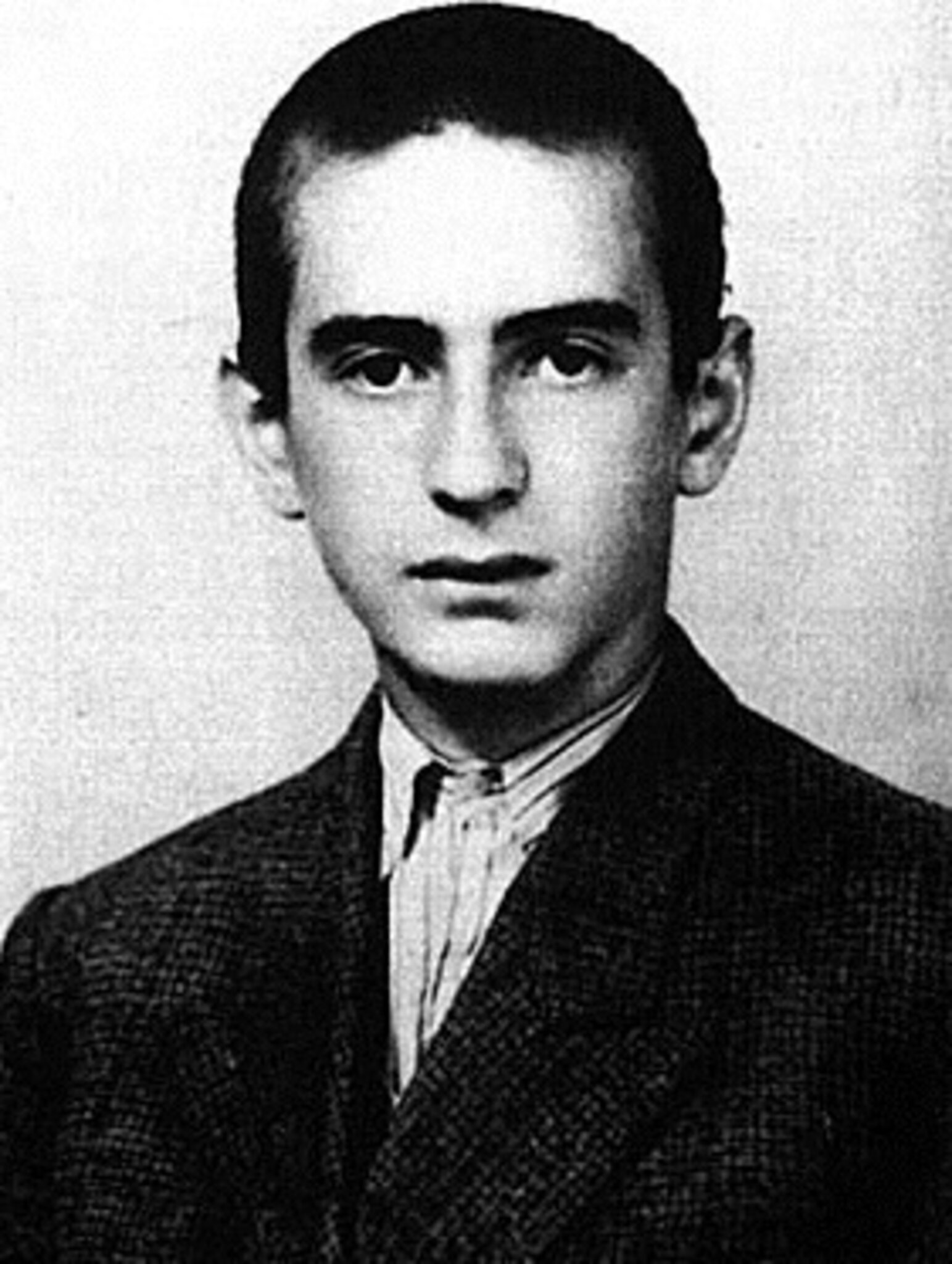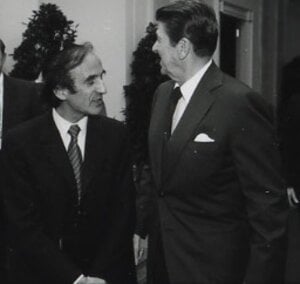Elie Wiesel
Speed read
Elie Wiesel was awarded the Nobel Peace Prize for his work as the world’s leading spokesman on the Holocaust.

Full name: Elie Wiesel
Born: 30 September 1928, Sighet, Romania
Died: 2 July 2016, New York, NY, USA
Date awarded: 14 October 1986
Witness and messenger
Jewish author, philosopher and humanist Elie Wiesel has made it his duty to bear witness to the sufferings of the Jewish people, to ensure that the world will never forget the Nazi-led genocide. Wiesel and his family were interned in concentration camps in Poland and Germany during WWII. The family was separated, and Wiesel lost his parents and a sister. An eyewitness to the carnage of the Nazis, Elie Wiesel is one of the world’s leading chroniclers of the story of the Holocaust. His message to people today: Fight indifference! Accordingly, Wiesel has voiced his support to persecuted and oppressed contemporaries, such as the victims of apartheid in South Africa.
| Holocaust The Nazi extermination of the Jewish people during WWII. The decision to implement “the final solution,” mass killing by gassing in specially-designed facilities, was taken at a meeting in Berlin in January 1942. Some six million Jews were murdered. |
”The Nobel Committee believes it is vital that we have such guides in an age when terror, repression, and racial discrimination still exist in the world.”
Chairman of the Norwegian Nobel Committee Egil Aarvik, Presentation Speech, 10 December 1986.
In the death camps
Elie Wiesel turned 16 in 1944, the year disaster struck the Jews of Sighet, Romania, which was part of Hungary at the time. Aided by Hungarian police, Hitler’s troops entered the town, arresting its 15,000 Jews. The Wiesels were sent to Auschwitz, a death camp in Poland, where Wiesel’s’s mother and a sister perished in the gas chamber. He and his father were sent from there to Buchenwald, a concentration camp in Germany, where his father died of starvation and dysentery. Young Elie Wiesel was emaciated and close to death when American soldiers liberated the camp in April 1945.

Journalist and author
Rooted in the Jewish storytelling tradition, Elie Wiesel became a writer at an early age. After the war, he studied literature and philosophy at the Sorbonne in Paris. This formed the foundation for his career in journalism, which shortly after became his livelihood. It is as a witness to the extermination of the Jews that Wiesel’s prominence as author and person emerged. He forced himself to wait ten years before writing about his experiences in order to distance himself from the atrocities. He first published La Nuit (Night) in 1958. The book is a gripping eyewitness account of the Nazi-led genocide.
The Elie Wiesel Foundation for Humanity
Wiesel donated his peace prize money to the Elie Wiesel Foundation for Humanity, established in 1987. The foundation’s mission is to promote human rights and peace by bringing together creative people at conferences to discuss pressing ethical issues. Together with the Norwegian Nobel Institute, Wiesel hosted one such conference, “The Anatomy of Hate”, in Oslo in 1990. The conference was well attended, and gathered together other leaders of the peace effort, including Nelson Mandela, Jimmy Carter, Yelena Bonner, Nadine Gordimer, Vaclav Havel and Günter Grass.

| Humanist A person who emphasizes the worth and dignity of the individual and who seeks to cultivate the values and philosophy of life that lead to the most fulfilling existence for human beings in their lives on earth. |
Learn more
Elie Wiesel was born in 1928 in the town of Sighet, now part of Romania. During World War II, he, with his family and other Jews from the area, were deported to the German concentration and extermination camps, where his parents and little sister perished. Wiesel and his two older sisters survived ...
Disclaimer: Every effort has been made by the publisher to credit organisations and individuals with regard to the supply of photographs. Please notify the publishers regarding corrections.
Nobel Prizes and laureates
Six prizes were awarded for achievements that have conferred the greatest benefit to humankind. The 12 laureates' work and discoveries range from proteins' structures and machine learning to fighting for a world free of nuclear weapons.
See them all presented here.
